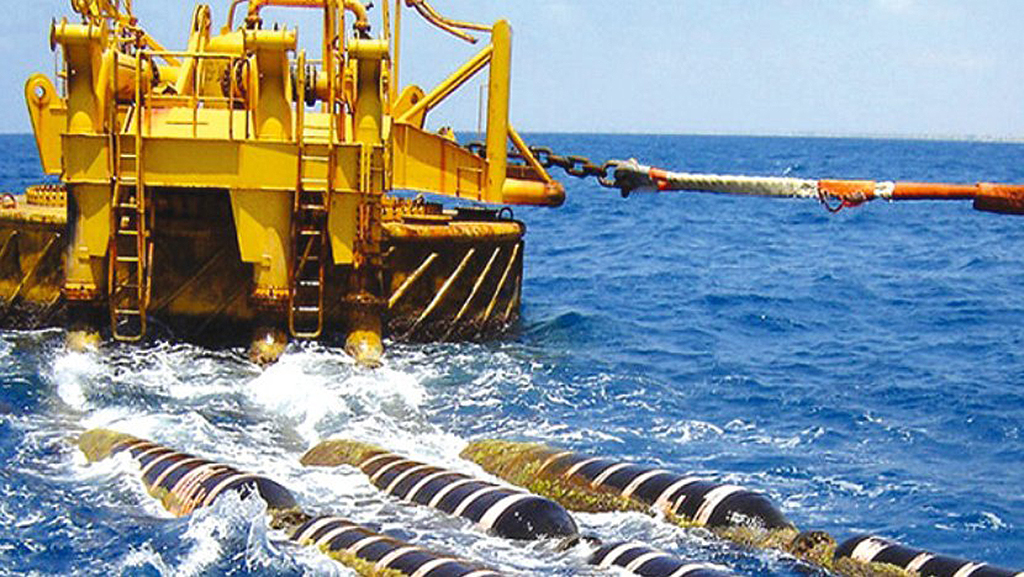Athens is getting cold feet in relation to a planned subsea electricity cable linking Greece to Cyprus, Turkish media reported on Tuesday.
Turkish daily Milliyet, which led with a story sensationally titled ‘Electrocution’, cited various analysts opining that the Greek government has been “forced to come to its senses” over Ankara’s strong objections to the cable project.
The analysts said the government of Kyriakos Mitsotakis has put on hold the Great Sea Interconnector project due to pressure from Turkey and a currently unfavourable geopolitical environment.
The same pundits made much of US President Donald Trump’s recent remarks about Turkish leader Tayyip Erdogan. Last week, and with Israeli Prime Minister Benjamin Netanyanhu seated next to him in the Oval Office, Trump heaped praise on Erdogan.
“I have great relations with a man named Erdogan,” Trump said. “He’s a tough guy. He’s very smart.” The US President said he thought he could work out any disagreement between Turkey and Israel.
The comments were understood to allude to tensions between Ankara and Tel Aviv over Syria.
According to Turkish diplomat Uluc Ozulker, the Turkish side made a counter-offer to ‘south Cyprus’ – as he called it.
“If you want, we can give you electricity, we can work together. We made an overture to them, but south Cyprus rejected it.”
And given the US stance on Israel and Turkey, Athens has had to reassess the weight of its own relations with Tel Aviv.
“Mitsotakis postponed his visit to Turkey, but it’s understood that he’s still ready to discuss what can be done to keep ties with Turkey on a positive level,” Ozulker said.
“The project [meaning the interconnector] needs to pass through Turkey’s area of maritime jurisdiction. But Turkey said ‘you cannot pass, we do not allow it, we will block it’.”
Turkey insists that Greek rights are restricted to six nautical miles of territorial waters. Greece argues that the 2020 maritime demarcation deal with Egypt legally establishes its rights in the area, unlike the Turkey-Libya memorandum, which Greece rejects as invalid.
Milliyet next quoted Mehmet Seyfettin Erol, the head of the Ankasam (Ankara Center for Crisis and Policy Studies) think tank.
Erol suggested that Mitsotakis’ putting off his trip to Ankara for rapprochement talks coincided with Athens placing the interconnector project on ice.
“Netanyahu’s failure to get what he expected from the White House…seems to have forced Athens into a more rational assessment,” the professor said.
“Israel’s growing isolation in foreign policy, particularly when it comes to such projects, and Turkey’s emergence as a player that is preferred not only in terms of US foreign policy but also in the European framework more broadly, forces Athens to tread carefully and come to its senses.”
For his part, Sadık Akyar, a professor at Girne (Kyrenia) American University, told the daily: “The [interconnector] project does not seem profitable. It is a costly project, and Turkey opposes it.
“Also, these cables have the following attribute – they can be cut at any moment.”
Asked whether energy projects in general can be implemented in the eastern Mediterranean, Akyar stated this would be difficult without Turkey’s consent.
In early March, the project promoter for the Great Sea Interconnector temporarily suspended payments to the cable manufacturer.
At the time the move was read as Admie – the promoter in Greece – temporarily disengaging from the cable project, unwilling to take on more financial risk amid the geopolitical uncertainty.
This followed a significant disruption in July 2024, when Turkish naval vessels obstructed an Italian ship conducting surveys for the project south of the Greek island of Kasos. Although the project was still in its early stages of research, the Turkish interference, coupled with the inability to reach a resolution through direct Greek-Turkish talks, made progress difficult and uncertain.
Cyprus’ Energy Minister George Papanastasiou told media at the time that the decision to suspend payments to the cable manufacturer was taken “to safeguard Admie’s finances, as the final order for the cable’s production could not be placed due to missing technical, financial and geopolitical components.”
A few days earlier, an Italian research vessel had departed Greek waters and returned to Italy.
As a side note, Wikipedia’s entry for the Great Sea Interconnector now uses the past tense for the project: “The Great Sea Interconnector, formerly known as the EuroAsia Interconnector was a planned Hvdc interconnector between the Greek, Cypriot and Israeli power grids via the world’s longest submarine power cable…”






Click here to change your cookie preferences